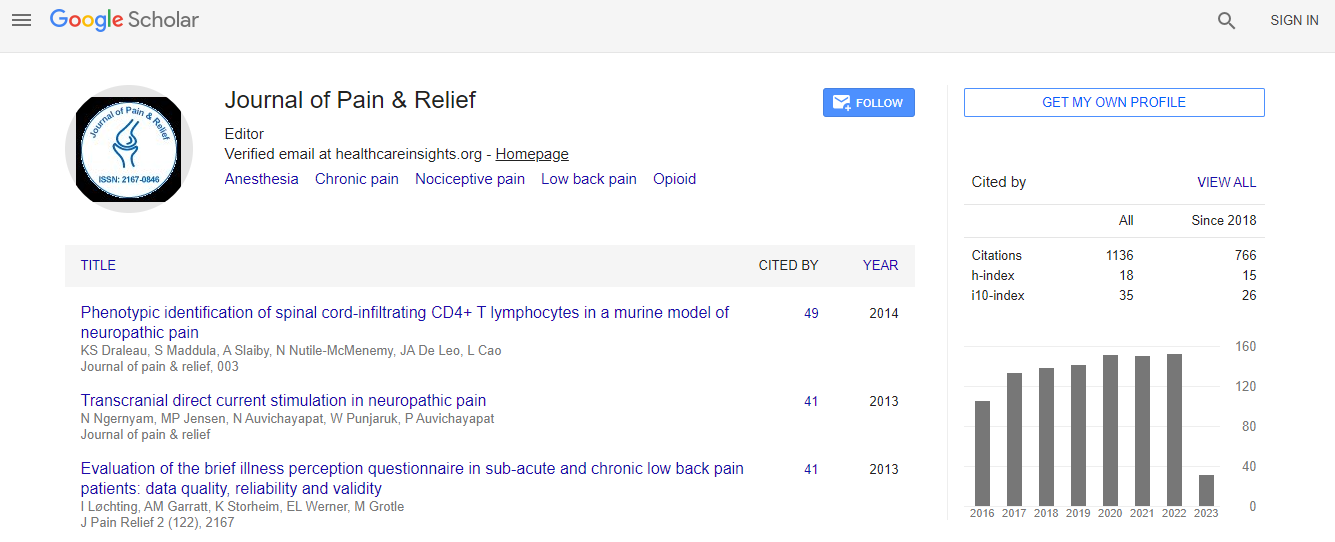Short Communication
Opioid-Induced Gastrointestinal Dysfunction (OGD): A Questionnaire Survey of Chronic Opioid Users
| Spierings ELH* | |
| Department of Neurology, Tufts Medical Center, Boston, Massachusetts, USA | |
| Corresponding Author : | Spierings ELH Clinical Professor, Craniofacial Pain Center One Kneeland Street, Boston, MA 02111, USA Tel: 617-636-6817 Fax: 617-636-3831 E-mail: Egilius.Spierings@Tufts.edu |
| Received March 30, 2015; Accepted June 19, 2015; Published June 23, 2015 | |
| Citation: Spierings ELH (2015) Opioid-Induced Gastrointestinal Dysfunction (OGD): A Questionnaire Survey of Chronic Opioid Users. J Pain Relief 4:187. doi: 10.4172/2167-0846.1000187 | |
| Copyright: © 2015 Spierings ELH. This is an open-access article distributed under the terms of the Creative Commons Attribution License, which permits unrestricted use, distribution, and reproduction in any medium, provided the original author and source are credited. | |
Abstract
In order to gain insight into the symptoms of opioid-induced gastrointestinal dysfunction, we conducted a questionnaire survey among 119 daily prescription-opioid users, also to understand how they deal with the dysfunction, with or without physician assistance, using the abundantly available, over-the-counter constipation remedies. Almost 80% had constipation, as opposed to almost 20% before taking opioids, and more than 60% had constipation despite the use of constipation remedies. More than half had bowel movements 1 to 3 times per week, which was the case in slightly over 20% before taking opioids. Despite the use of constipation remedies, straining, incomplete evacuation, rectal impaction, and hard stool were common. Of these symptoms, hard stool was considered to be the most bothersome, followed by flatulence, abdominal discomfort/pain, false alarm, and abdominal bloating. Relatively serious complications of the constipation, such as hemorrhoids, anal fissures, rectal impaction, and rectal prolapse, were reported by 20% to 40% of patients. Of the stomach symptoms per se, anorexia and acid reflux were relatively common, warranting the term opioid-induced gastrointestinal dysfunction.

 Spanish
Spanish  Chinese
Chinese  Russian
Russian  German
German  French
French  Japanese
Japanese  Portuguese
Portuguese  Hindi
Hindi 
